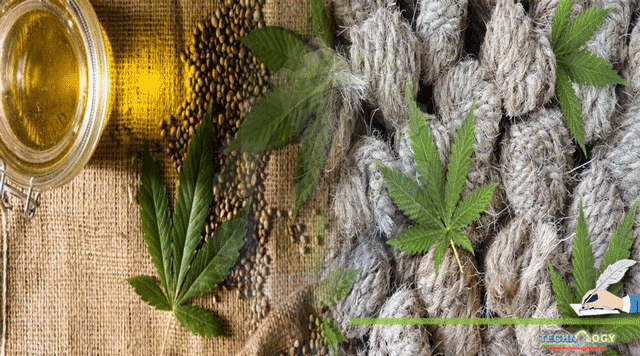Hemp (Cannabis sativa L.) is an herbaceous crop belongs to family Cannabaceae. It is considered as one of the oldest plants cultivated and consumed throughout the worldwide.

By Maria Naqve, Asif Mukhtiar, Masood Ahmad, Athar Mahmood
It was first used medicinally around 400 A.D. This plant contains over 500 identified chemicals and 100 of them are classified as cannabinoids which are psychoactive and non-psychoactive as well. Among these cannabidiol (CBD) is non-psychoactive and Tetrahydrocannabinol (THC) is psychoactive however, less than 0.3% concentration of THC is non-narcotic as well.
Current trends in Pakistan
In September 2020, the federal cabinet of Pakistan has approved the production of industrial hemp by the government that could result in a $1billion market for Pakistan in the future. Pakistan intends to import a particular assortment of cannabis seeds to start research on its mechanical and clinical use to take advantage of the $25 billion CBD market. CBD compound assumes a significant job in helpful medication and after 2016 an advancement research was uncovered which incited China to set up a cannabis research office and is currently developing hemp on 40,000 sections of land, and Canada is developing it on 100,000 sections of land. Pakistan intends to develop legitimate degrees of tetrahydrocannabinol (THC), around 0.3 percent or beneath. Approval and affirmation of hemp will be performed by the universally perceived International Center for Chemical and Biological Sciences (ICCBS) in Pakistan.
Hemp as Food Supplement
Hemp has been a valuable source of food for mankind for thousands of years. Hemp leaves, sprouts and flower can be consumed as a raw food and by preparing juices and salads. Its inflorescence is extensively used worldwide as a source of food and supplement ingredients as it is non-psycho active. Hemp sprouts can also be consumed as food which consist of polyphenols, flavonoids and flavanols which have positive role in metabolism and controlling cardiovascular diseases. Hemp seeds provide approximately 500-600 kcal/100 g of product and are composed of one fourth of carbohydrates and one third of fats. Hemp provide a valuable source of Sulphur containing amino acids, methionine and cystine, which are helpful for cardiovascular activity. Addition of hemp flour to starch make gluten free bread, improves its palatability in terms of flavor and color as well as nutritional values with increased level of fibers and proteins.
Hemp as medicinally important crop:
The cannabis is very important as versatile medicine. The cannabinoids compounds are very helpful in regulation of appetite, pain, mood, memory inflammation, insulin sensitivity as well as fat and energy metabolism. These medicines are also involved in therapeutic implications for treatment of pain, neuropsychiatric disorders and neurological diseases, hepatic and kidney disorders. CBD exerts a wide range of biological effects including anticonvulsant, anti-inflammatory, immune modulating and antineoplastic activity Terpenes found in hemp also have multiple medicinal uses. β-myrcene has great anti-inflammatory activity in humans. Limonene may exert anti allergic activity. Another important terpene found in hemp is β-caryophyllene which has anxiolytic effects.
Hemp as an effective therapy against COVID-19
The application of medicinal hemp in management of corona virus disease 2019 (COVID-19) has been explored by a couple of scientific studies. COVID-19 is an infectious disease that occurs as a result of the SARS-CoV-2 in humans. Therefore, in the search for a vaccination or cure, the application of this plant has been explored by scientists who have given preliminary findings showing that the plant may offer resistance to SARS-CoV-2.
Seeds and leaves:
Hemp seed has a pleasant nutty taste,50 mg of seeds can cover 50-100% of the recommended daily intake of several minerals including copper, magnesium and zinc and provide greater than 100% of daily recommended dose of vitamins A, D and E. Hempseed oil is composed of polyunsaturated fatty acids which have beneficial effects against cardiovascular diseases, cancer, anti-inflammatory and antihypertensive effects. Its oil is the most used in cosmetic industry as a sun cream due to its capacity to absorb UV rays and has high content of vitamin E. The unsaturated fatty acids of hempseed oil such as linolenic acid has cardioprotective effects. The oil also has antioxidant capacity due to its contents such as phenols and flavonoids. The compounds in leaves such as myrcene, limonene, trans-β-ocimene, α-terpinolene, trans-caryophyllene, α-humulene and caryophyllene which have different medical importance. Cannabis smoking is done by using the dry leaves and used as tea
Hemp as an industrial product:
There are various industrial or economic products of hemp. Industrial hemp comprises fiber and oilseed. It is estimated that the hemp market entails more than 25,000 products, ranging from textiles, clothing, home furnishing, industrial oils, cosmetics to food and pharmaceuticals. The durability and high strength properties of cellulose rich fiber from stalk make it valuable product for rope, paper, construction and reinforcement materials. As a fiber crop; it produces 250% more fiber than cotton and 600% more fiber than flax, from the same acreage. It is the strongest natural fiber in the world. Interest in hemp crop can be attributed to the demand for sustainable agricultural practices, along with the recognition of hemp’s superior fiber content and nutritional profile. Legislative and regulatory interventions should aim at encouraging adequate practices to get benefit from this crop to explore its potential to boost up the economy of country.
Authors : Maria Naqve, Asif Mukhtiar, Masood Ahmad, Athar Mahmood Univeristy of Agriculture Faisalabad